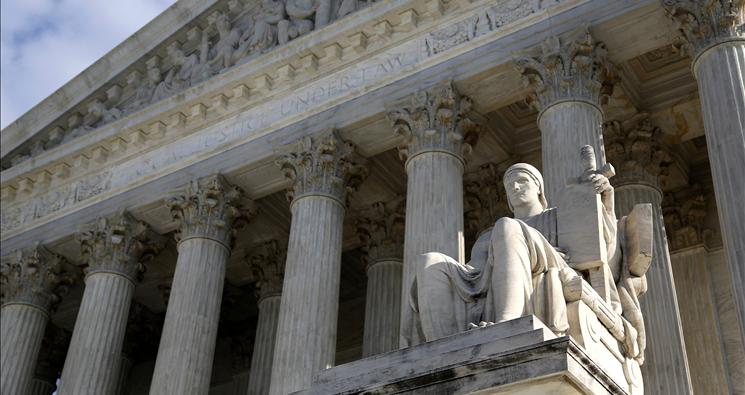Two Possible Outcomes of the Supreme Court’s HHS Mandate Decision
This past March the Supreme Court of the United States heard oral argument in two cases dealing with the Obama Administration’s HHS Mandate, which requires many employers—despite their religious objections—to arrange and pay for employee health insurance that covers abortion-inducing drugs, contraceptives, and sterilization.
At issue in the two cases is whether the federal government can force a family-owned business and its owners to violate their religious beliefs in the operation of that business.
The two cases before the Supreme Court involve three family-owned businesses and their owners. One case involves Hobby Lobby Stores, an arts and crafts chain, and Mardel, a bookstore and educational supply company that specializes in Christian materials. The two businesses are owned and operated by a family of devout Christians. The other case involves Conestoga Wood Specialties, which makes doors and other wooden parts for kitchen cabinets. It is owned and operated by a family of devout Mennonites.
The companies and their owners oppose the HHS Mandate because, to implement the Mandate, they would have to violate their pro-life religious beliefs by providing and paying for abortion-inducing drugs and devices for their employees.
The ACLJ filed a “friend-of-the-court” brief with the Supreme Court in support of the three businesses and their owners. The ACLJ filed the brief on behalf of itself, more than 90,000 ACLJ supporters, and twenty-one family business owners.
The Supreme Court is expected to rule in the HHS Mandate cases by the end of this month. Here are two possible outcomes and their consequences:
The Court rules for the government. To reach that decision, the Court would have to conclude either (1) that the companies and their owners do not have any religious rights that are being substantially burdened by the Mandate or (2) that, even if they did, the government’s actions are justified by a compelling governmental interest.
If the Court reaches this decision, those three companies and their owners would have to comply with the Mandate and, thereby, violate religious principles, or face stiff penalties that could cripple or destroy them.
The Court rules for the companies and owners. To reach that decision, the Court would have to conclude (1) that the Mandate places a substantial burden on their religious beliefs because it requires them to arrange and provide employee health insurance that runs contrary to those beliefs and (2) that the government has not established a sufficiently compelling reason to impose such a burden. (This is the outcome reached last November in our Korte case out of the Seventh Circuit Court of Appeals.)
If the Court reaches that decision, the Mandate would not apply to those three companies and they would be able to provide employee health insurance that excludes the religiously objectionable aspects of the Mandate.
Of course, the Supreme Court’s decision may not be that cut and dry where there is a clear winner and loser. It could be more nuanced. We will know more about that in the coming weeks.
What is clear, however, is that the Supreme Court’s decision, no matter its outcome, will directly impact the ACLJ’s seven pending legal challenges to the Mandate as well as the forty or so other federal Mandate lawsuits filed by for-profit businesses and their owners. The lower federal courts will have to implement the Supreme Court’s decision in these various cases.
To date, the ACLJ has been fortunate to have obtained injunctions against the application and enforcement of the HHS Mandate for all of our clients. We hope the Supreme Court’s decision will cause those injunctions to become permanent so our clients can continue to run their family businesses in compliance with their religious, pro-life beliefs.
We will continue to keep you posted about the important events related to the litigation involving the HHS Mandate.
